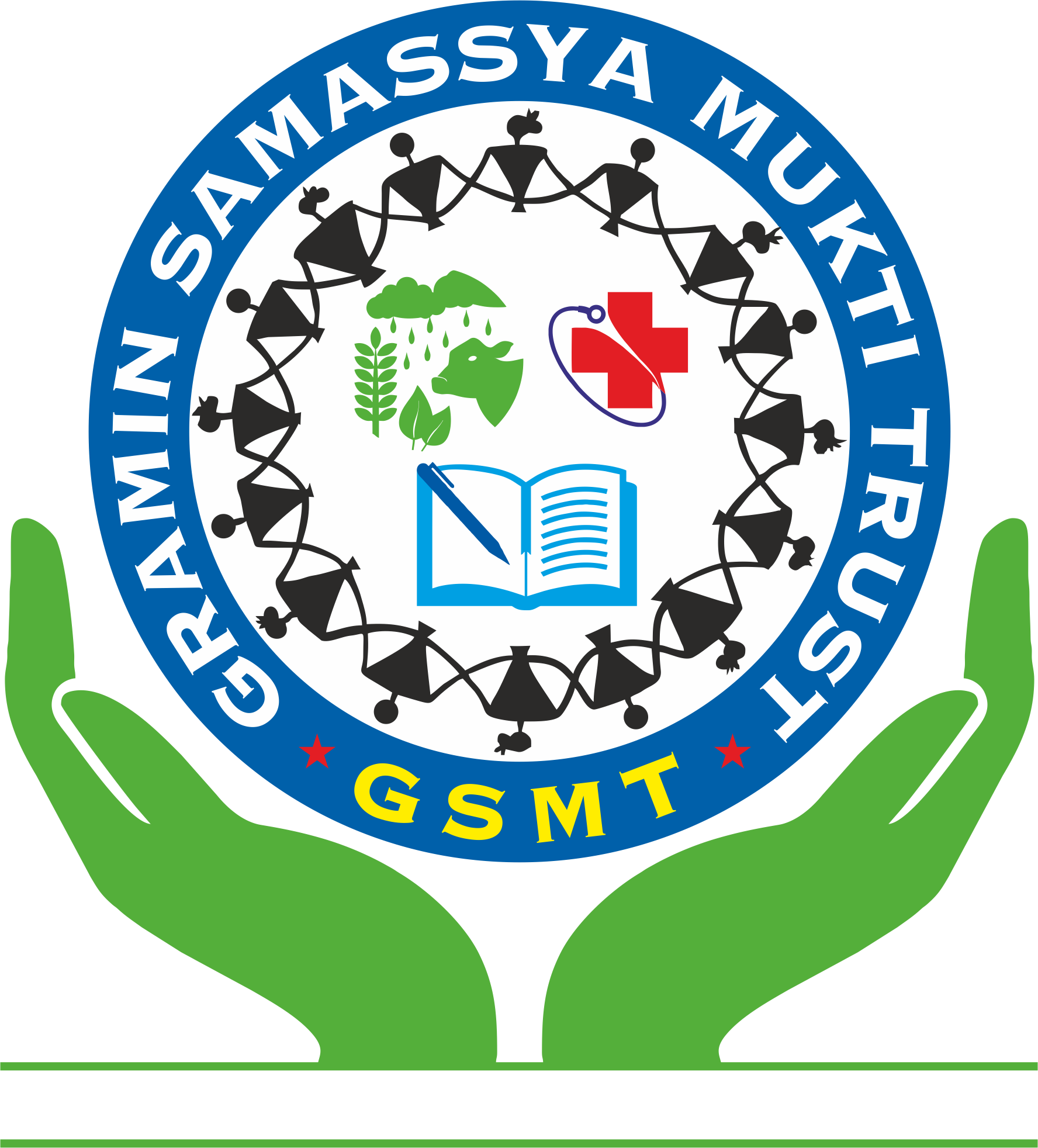About
-
Headquarters
Yavatmal, Maharashtra
-
Since
1990
Gramin Samassya Mukti Trust is a voluntary organisation dedicated to sustainable development in rural, tribal, and urban communities. Its establishmen Read moret was driven by specific objectives focused on addressing livelihood, health, and educational challenges while considering sustainability and ecological security. Recognizing the interconnectedness of these issues, the organisation advocates for an integrated approach. It works with a vision to create healthy, self-reliant, gender-just, and self-governed communities. The mission entails building the capacities of local self-governing statutory bodies and community-based organisations, establishing sustainable models, and facilitating scalability. Collaboration with civil society organisation networks is also prioritized for broader impact. Emphasizing empowerment, the organisation believes in strengthening local self-governance as a key approach to enhancing community skills for self-management. With a special emphasis on women, the organisation works tirelessly to empower marginalized and socio-economically oppressed communities, addressing their needs comprehensively.
Cause Area
Impact
Gramin Samassya Mukti Trust has achieved impact, including facilitating Community Forest Rights for 760 villages, preparing Conservation and Management plans for 105 Gramsabhas, and working with 20,000 farmers on sustainable agriculture techniques, crop yields have increased from 2-3 quintals to 6 quintals, benefiting 38 farmers and promoting horticulture as an additional income source, played a role in the formation and functioning of 695 women Self-Help Groups (SHGs) with 7,014 women members, leading to enhanced women's participation in village development and decision-making, around 12,000 tribal families have adopted vegetable Kitchen gardening, while the establishment of Anand Balsadan has positively impacted the lives of over 600 children, providing a safe and nurturing environment, contributed to disaster management planning in 145 villages across the Yavatmal district.
Programs
-
Community Health & Nutrition Programme
GSMT's interventions in community health focus on enhancing the capacities of community-based organisations to promote safe behaviour and a healthy lifestyle. A healthy community forms the foundation for overall development, but it is often overlooked, particularly in rural and tribal areas. GSMT's interventions encompass various areas, including promoting healthy lifestyles, reproductive health, community-based rehabilitation for persons with disabilities, water and sanitation, as well as disease treatment and prevention.
-
Child Rights Protection and Quality Education Programme
With a focus on disadvantaged and underprivileged children, GSMT has been dedicated to child rights protection and quality education for the past two decades. Many children in rural, tribal, and urban settlements in the Yavatmal district face numerous challenges, including child labour, sexual abuse, violence, early marriages, and child trafficking. GSMT actively works with these children, implementing programmes to safeguard their rights and address these issues, aiming to provide them with a brighter and more secure future.
-
Covid-19 Corona Virus Campaign
The Covid-19 pandemic caused sudden disruptions and challenges in the community, including a lockdown in the Yavatmal district. With 16 cases reported, contact tracing and quarantining measures were implemented, impacting many areas. Around 36,000 people were home quarantined, facing shortages of food, essential supplies, and preventive equipment. GSMT identified vulnerable individuals and families, providing support through the distribution of food and hygiene kits. Coordination with the district administration enabled effective collaboration, with 15 staff members authorized to work closely with the community.
-
Natural Resource Management and Climate Change Programme
GSMT focuses on sustainable agriculture by training small, marginal, single-woman farmers in techniques like natural farming and better cotton standards. The organisation addresses the agrarian crisis by promoting ecological and viable farming practices, resulting in environmental protection, improved soil fertility, increased income, and access to nutritious food. Water conservation and management initiatives ensure sufficient and safe water access for drinking, hygiene, and irrigation, while sustainable forest management empowers tribal communities to manage and protect their forest resources through participatory approaches.
-
Women Empowerment Gender Equality Programme
For Gramin Samassya Mukti Trust (GSMT), women's empowerment is a vital element for community growth. Gender and women empowerment are integrated themes across all interventions, emphasizing the active participation of women in holistic and sustainable development. GSMT focuses on strengthening women through group and federation involvement, mandating 50% women representation in committees, and enhancing their skills and capacities to integrate them into the mainstream.
-
Building Governance Programme
The 73rd Amendment empowered Panchayats with responsibilities for implementing 29 subjects listed in the 11th schedule. However, due to limited knowledge and capacities, Panchayat members face challenges in effectively fulfilling their roles in Grampanchayat and Gramsabha activities. Women, despite having reservations, require support and training to work efficiently. The capacities of Gramsabha members are enhanced, improving their skills in planning, execution, monitoring, advocacy, and financial management. With the support of various departments, Gramsabhas have developed five-year conservation and management plans, benefiting the community through livelihood schemes.
Leadership Team
M&E
-
Internal, External Assessors
No
Policies
-
Ethics and Transparency Policies
No
-
Formal CEO Oversight & Compensation Policy
No
Political & Religious Declarations
-
On Affiliation if any
No
-
On Deployment Bias if any
No
Registration Details
-
PAN Card
AABTG3295J
-
Registration ID
2319
-
VO ID / Darpan ID
MH/2016/0099321
-
12A
AABTG3295JE20214
-
80G
AABTG3295JF20214
-
FCRA
084010011
-
CSR Registration Number
CSR00001567
Location
Other Details
-
Type & Sub Type
Non-profit
Trust



